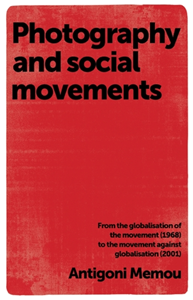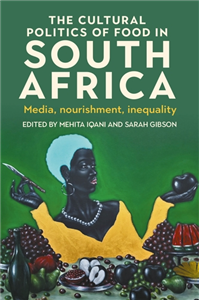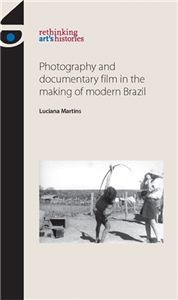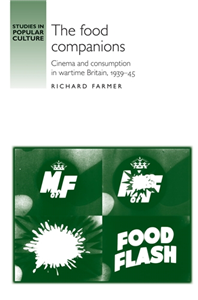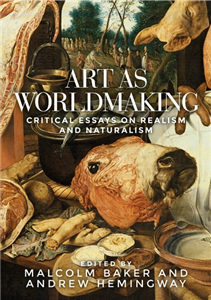Your Search Results
-
Promoted Content2023
Food Composition Table for the Practice
The small Souci/Fachmann/Kraut
by Founded by S.W. Souci, W. Fachmann and H. Kraut. Revised by Dr. Petra Steinhaus. Edited by the Leibniz Institute of Food Systems Biology at the Technical University of Munich.
■ How many omega-3 fatty acids does salmon contain? ■ Which dairy product contains the most calcium? ■ How iron-rich is spinach, really? Whether calories, vitamins or amino acids – whether in field beans, bananas, eggs, chicken, parmesan cheese or onion – it is all here. The compact edition of the time-tested „large SFK [Souci/Fachmann/Kraut]“ offers tested data on over 70 ingredients in more than 360 foods, systematically structured according to food groups. This edition with thousands of values has been completely revised and updated by the Leibniz Institute of Food Systems Biology at the Technical University of Munich. Extra: 32 summary tables cover more than 300 other, less common foods and allow for targeted, clear comparisons. 16 orientation tables provide information about foods with particularly high or low amounts of ingredients. Nutritional values, energy content, main components and ingredients displayed in uniform systematics and a practical format – just look it up!
-
Promoted ContentBusiness, Economics & LawOctober 2004
Qualities of food
by Mark Harvey, Andrew McMeekin, Alan Warde
In this book, the complexity and the significance of the foods we eat are analysed from a variety of perspectives, by sociologists, economists, geographers and anthropologists. Chapters address a number of intriguing questions: how do people make judgments about taste? How do such judgments come to be shared by groups of people?; what social and organisational processes result in foods being certified as of decent or proper quality? How has dissatisfaction with the food system been expressed? What alternatives are thought to be possible? The multi-disciplinary analysis of this book explores many different answers to such questions. The first part of the book focuses on theoretical and conceptual issues, the second part considers processes of formal and informal regulation, while the third part examines social and political responses to industrialised food production and mass consumption. Qualities of food will be of interest to researchers and students in all the social science disciplines that are concerned with food, whether marketing, sociology, cultural studies, anthropology, human nutrition or economics.
-
 Trusted Partner
The ArtsSeptember 2015
Trusted Partner
The ArtsSeptember 2015Photography and social movements
From the globalisation of the movement (1968) to the movement against globalisation (2001)
by Antigoni Memou
Now available for the first time in paperback, Photography and social movements is the first thorough study of photography's interrelationship with social movements. Focusing on photographic production and dissemination during the student and worker uprising in Paris in May 1968, the Zapatista rebellion, and the anti-capitalist protests in Genoa in 2001, the book argues that at times of political uprisings, photographic documentations, often contradictory, strive to prevail in the public domain, extending the political or economic struggle to a representational level. Photography plays a central role in this representational conflict, by either reproducing or challenging stereotypical narratives of protest. This groundbreaking interdisciplinary analysis of a wide range of practices - amateur and professional - and of previously unpublished archival material will add considerably to students', researchers' and scholars' knowledge of both the visual imagery of political movements and the developing history of photographic representation. ;
-
 Trusted Partner
2020
Trusted Partner
2020Interactions between Medicines and Food
by Prof. Dr. Martin Smollich and Dr. Julia Podlogar
Interactions between medicines and foodstuffs may be just as clinically relevant as interactions between individual drugs. A single meal contains several hundred potentially interacting compounds that, in an individual patient, may be the deciding factor as to whether a treatment is successful or not. The resulting, sometimes serious risks are not known to most patients – nor to many physicians and pharmacists. This practical handbook enables anyone interested in applied pharmacotherapy to keep abreast of the complex field of drug interactions. The authors – proven experts in clinical pharmacology and pharmaconutrition – describe the most important interactions and give concrete recommendations for action. Tables and overviews permit fast access to potentially problematic combinations. This completely updated edition now also includes information about fruit juices and curcumin as well as a new chapter on food interactions in oncology.
-
 Trusted Partner
Humanities & Social SciencesApril 2009
Trusted Partner
Humanities & Social SciencesApril 2009Food, risk and politics
Scare, scandal and crisis - insights into the risk politics of food safety
by Ed Randall
This is a book about the risk politics of food safety. Food-related risks regularly grab the headlines in ways that threaten reasoned debate and obstruct sensible policy making. In this book, Ed Randall explains why this is the case. He goes on to make the case for a properly informed and fully open public debate about food safety issues. He argues that this is the true antidote to the politics of scare, scandal and crisis. The book skilfully weaves together the many different threads of food safety and risk politics and offers a particularly rewarding read for academics and students in the fields of politics and media studies. It will also appeal to scholars from other disciplines, particularly social psychology and the food sciences. The book is a lively and exceptionally readable account of food safety and risk politics that will engage policy makers and the general reader. It promises to help us all manage food safety issues more intelligently and successfully. ;
-
 Trusted Partner
October 2020
Trusted Partner
October 2020Simple Food!
Anti the Food Frenzy in Our Minds
by Thomas A. Vilgis
This book follows a unique path in the ubiquitous food debate: it leads us on the trail of the origins of our food culture, from the Neolithic period to the present day. Thomas A. Vilgis has compiled a guide that combines scientific with cultural or sociological aspects. How did Stone Age man poach food? Which cereal varieties were cultivated first? What is the mysterious umami flavour all about? The cultural historical excursion gets interactive with plenty of recipes for those curious to test Kimchi with birch leaves or red cabbage in their dessert.
-
 Trusted Partner
The ArtsJanuary 2019
Trusted Partner
The ArtsJanuary 2019Realist film theory and cinema
The nineteenth-century Lukácsian and intuitionist realist traditions
by Ian Aitken
'Realist film theory and cinema' embraces studies of cinematic realism and 19th century tradition, the realist film theories of Lukács, Grierson, Bazin and Kracauer, and the relationship of realist film theory to the general field of film theory and philosophy. This is the first book to attempt a rigorous and systematic application of realist film theory to the analysis of particular films. The book suggests new ways forward for a new series of studies in cinematic realism, and for a new form of film theory based on realism. It stresses the importance of the question of realism both in film studies and in contemporary life. Aitken's work will be of interest to scholars and advanced students of film studies, literary studies, media studies, cultural studies and philosophy.
-
 Trusted Partner
Humanities & Social SciencesSeptember 2010
Trusted Partner
Humanities & Social SciencesSeptember 2010Photography and memory in Mexico
Icons of Revolution
by Andrea Noble
Photography and memory in Mexico traces the 'life stories' of some of the famous photographic images made during the 1910 revolution, which have been repeatedly reproduced across a range of media in its aftermath. Which photographs have become icons of the revolution and why these particular images and not others? What is the relationship between photography and memory of the conflict? How do we construct a critical framework for addressing the issues raised by iconic photographs? Placing an emphasis on the life, afterlife and also the pre-life of those iconic photographs that haunt the post-revolutionary landscape, Andrea Noble approaches them as dynamic objects, where their rhetorical power is derived from a combination of their visual eloquence and their ability to coordinate patterns of identification with the memory of the revolution as a foundational event in Mexican history. Richly-illustrated, this book will be of interest to all those interested in photography, memory studies, and Mexican cultural history. ;
-
 Trusted Partner
Humanities & Social SciencesMarch 2026
Trusted Partner
Humanities & Social SciencesMarch 2026The cultural politics of food in South Africa
Media, nourishment, inequality
by Mehita Iqani, Sarah Gibson
Food is both a material system of nourishment, necessary for human survival, and a communicative system that signifies multiple meanings across human cultures. This book explores the cultural politics of food in the South African context, bringing together a range of disciplinary perspectives on the links between media, nourishment, and inequality. The chapters all highlight the multiplicity of meanings that food has in South African society. These include historical perspectives on the impact of colonialism, migration and apartheid had on food and foodways in South Africa; sociological interventions on food and society; aesthetic practices in relation to food; and mediated food cultures in South Africa. Taken together, the book critically explores the multiple ways in which food is never just food, and always linked to complex and shifting modalities of meaning and knowledge in the South African context.
-
 Trusted Partner
The ArtsOctober 2013
Trusted Partner
The ArtsOctober 2013Photography and documentary film in the making of modern Brazil
by Luciana Martins, Amelia Jones, Marsha Meskimmon
Photography and documentary film in the making of modern Brazil provides a major contribution to the field of visual culture through a study of still and moving images of Brazil in the first four decades of the twentieth century, when the camera played a key role in making Brazilian peoples and places visible to a variety of audiences. The book explores what is distinctive about the visual representation of Brazil in an era of modernisation, also attending to the significance of the different technical properties of film and photography for the writing of new histories of visual technologies. It offers new insights into the work of key writers, photographers, anthropologists and filmmakers, including Claude Lévi-Strauss, Mário de Andrade, Silvino Santos and Aloha Baker. Unearthing a wealth of materials from archives in the USA, Britain, and Brazil, the book seeks to contribute to the postcolonial theoretical project of pinpointing locally distinctive histories of visual technologies and practices. ;
-
 Trusted Partner
The ArtsJune 2021
Trusted Partner
The ArtsJune 2021Lukácsian film theory and cinema
A study of Georg Lukács' writing on film 1913–1971
by Ian Aitken
Lukácsian film theory and cinema explores Georg Lukács' writings on film. The Hungarian Marxist critic Georg Lukács is primarily known as a literary theorist, but he also wrote extensively on the cinema. These writings have remained little known in the English-speaking world because the great majority of them have never actually been translated into English - until now. Aitken has gathered together the most important essays and the translations appear here, often for the first time. This book thus makes a decisive contribution to understandings of Lukács within the field of film studies, and, in doing so, also challenges many existing preconceptions concerning his theoretical position. For example, whilst Lukács' literary theory is well known for its repudiation of naturalism, in his writings on film Lukács appears to advance a theory and practice of film that can best be described as naturalist. Lukácsian film theory and cinema is divided into two parts. In part one, Lukács' writings on film are explored, and placed within relevant historical and intellectual contexts, whilst part two consists of the essays themselves. This book will be of considerable interest to scholars and students working within the fields of film studies, literary studies, intellectual history, media and cultural studies. It is also intended to be the final volume in a trilogy of works on cinematic realism, which includes the author's earlier European film theory and cinema (2001), and Realist film theory and cinema (2006).
-
 Trusted Partner
Business, Economics & LawOctober 2020
Trusted Partner
Business, Economics & LawOctober 2020Design Thinking Navigator
Kartenset zur kreativen Projektarbeit
by Mayer, Lena; Osann, Isabell; Szymanski, Caroline; Taheri, Mana
Design Thinking: Solve problems together, user-centered and iterative, develop innovations and have fun doing so! - Practical cards for innovation project work with change of perspective- Consistently customer-oriented and iterative- Targeted use of the maps in project planning and implementation with Design Thinking- Pragmatic, compact and wonderfully descriptive- Suitable for the most diverse questions or problems- With folding poster for targeted use of maps in project planning and decorative at the workplace- From the authors "Design Thinking Quick Start
-
 Trusted Partner
Humanities & Social SciencesAugust 2011
Trusted Partner
Humanities & Social SciencesAugust 2011The Food Companions
Cinema and consumption in wartime Britain, 1939–45
by Richard Farmer, Jeffrey Richards
The introduction of rationing in January 1940 ensured that food became a central concern for the British people during the Second World War. The food companions investigates the cinema of this period and demonstrates the cultural impact that rationing and food control had on both government propaganda and commercial feature films. Combining archival research, detailed film analysis, and the extensive use of contemporary documents and resources, this book is the first to fully address the extensive propaganda work of the Ministry of Food both inside and outside the cinema. It also explores the tensions contained in images of communal dining, investigating the role that food played in Gainsborough's narratives of excess and identifying and analysing a cycle of black-market feature films. Lively and illuminating, The food companions will be welcomed by film scholars, historians, students, and anyone who has ever wondered about the important contribution that tea made during the war to shaping ideas of Britishness. ;
-
 Trusted Partner
Trusted Partner
-
 Trusted Partner
Trusted Partner
-
 Trusted Partner
Humanities & Social SciencesAugust 2023
Trusted Partner
Humanities & Social SciencesAugust 2023Picturing the Western Front
Photography, practices and experiences in First World War France
by Beatriz Pichel
Between 1914 and 1918, military, press and amateur photographers produced thousands of pictures. Either classified in military archives specially created with this purpose in 1915, collected in personal albums or circulated in illustrated magazines, photographs were supposed to tell the story of the war. Picturing the Western Front argues that photographic practices also shaped combatants and civilians' war experiences. Doing photography (taking pictures, posing for them, exhibiting, cataloguing and looking at them) allowed combatants and civilians to make sense of what they were living through. Photography mattered because it enabled combatants and civilians to record events, establish or reinforce bonds with one another, represent bodies, place people and events in imaginative geographies and making things visible, while making others, such as suicide, invisible. Photographic practices became, thus, frames of experience.
-
 Trusted Partner
Children's & YA
Trusted Partner
Children's & YAThe Sparkling Ponies (4). Jana in Search of Happiness
by Emily Palmer/Josephine Llobet
Fiona simply doesn’t know what she should do first: Leo, the owner of the farm, is very depressed, and even the funny tricks of Sunny, the sparkling pony, can’t cheer her up. What’s more, the mysterious island on Lake Sparkle is to be sold, and that would be a disaster! There are so many sparkling tasks to be performed that Fiona almost overlooks a vital clue. But fortunately, her sparkling pony Sunny is still there. Just like the black horse Opal and his friend Jana, who together show that with the right amount of sparkling magic, all problems finally disappear…
-
 Trusted Partner
October 1973
Trusted Partner
October 1973Die See
Eine Komödie
by Edward Bond, Harald Mueller
Edward Bond wurde 1934 in der Londoner Vorstadt Holloway geboren. 1956 schrieb er erste Gedichte und Stückentwürfe und trat 1960 einer Dramatikergruppe um John Osborne, Arnold Wesker und John Arden bei. 1962 wurde Bonds erstes Stück, The Pope's Wedding (Die Hochzeit des Papstes), in London uraufgeführt. Sein zweites Theaterstück, Saved (Gerettet), provozierte einen der größten Skandale der britischen Theatergeschichte: Das Stück wurde kurz nach seiner Premiere im November 1965 im Royal Court Theatre aufgrund von expliziter Gewaltdarstellung von der Zensur verboten. Die sich anschließende Diskussion um Freiheit der Kunst bewirkte 1968 das Ende der britischen Theaterzensur. Große Erfolge wurden Anfang der 1970er Jahre seine Lear-Bearbeitung und das Stück The Sea (Die See). In den kommenden Jahrzehnten zahlreiche Stücke, Opernlibretti für Hans Werner Henze, Arbeit an Theatern, für den Film (u.a. Mitarbeit am Drehbuch zu Antonionis Film Blow up) und das Fernsehen. Edward Bond lebt in der Nähe von Cambridge. Harald Mueller, geb. am 18. Mai 1934 in Memel, war u. a. Theaterautor und Dramaturg. Für den Suhrkamp Verlag übersetzte er Werke von Bernard Shaw ins Deutsche. Er starb am 27. Dezember 2021.
-
 Trusted Partner
The ArtsSeptember 2025
Trusted Partner
The ArtsSeptember 2025Art as worldmaking
Critical essays on realism and naturalism
by Malcolm Baker, Andrew Hemingway
Introduction : Realism and its others in the 21st century: Why Realism won't go away - Andrew Hemingway Part I: Theory 1. The figure as double agent: realism and abstraction in European post-war art - Briony Fer 2. Realism's Credibility Problem - Joshua Shannon 3. If only; only if ... - Adrian Rifkin Part II: Sculpture 4. Confronting the Veristic Sculptural Portrait - Malcolm Baker 5. Sculpture, Realism and the Neo-classical Ideal - Martina Droth 6. Elasticity and Victorian Sculptural Form - Caroline Arscott 7. Image of the People: Charles Ray's Recent Work - Anne M. Wagner Part III: Garden Design 8. Of Gardens and Persons: the English Engagement with China's Garden Design - Martin Powers 9. Traditional Views. Conservative Anti-Naturalism and Landscape Aesthetics in France around 1900 - Neil McWilliam Part IV: Painting and Photography 10. Willem Kalf on Reflexykonst and the Aesthetics of Transformation in Still Life - Celeste Brusati 11. Democratic light: phenomenology and the worldliness of painting - Brendan Prendeville 12. The Visibility of Labor - T.J. Clark 13. Body and Soul in the work of Thomas Eakins and F. Holland Day - Rebecca Zurier Part V: Photography and Conema 14. Photography as counter forensics - Steve Edwards 15. Woman, War and Social Documentary Photography in South Africa - Tamar Garb 16. Antonioni's Blow-Up (1966): photography and film - Lisa Tickner Part VI: Post-Media / Contemporary Practice 17. Peter Dreher's Everyday Realism - Alistair Rider 18. From grey and rainy Vermont - Thomas Crow 19. 'Every day, something happens to us': Realism at the crossroads - Gail Day Index
-
 Trusted Partner
June 1994
Trusted Partner
June 1994Die See, Gerettet und andere Stücke
by Edward Bond, Harald Mueller, Klaus Reichert, Christian Enzensberger
Edward Bond wurde 1934 in der Londoner Vorstadt Holloway geboren. 1956 schrieb er erste Gedichte und Stückentwürfe und trat 1960 einer Dramatikergruppe um John Osborne, Arnold Wesker und John Arden bei. 1962 wurde Bonds erstes Stück, The Pope's Wedding (Die Hochzeit des Papstes), in London uraufgeführt. Sein zweites Theaterstück, Saved (Gerettet), provozierte einen der größten Skandale der britischen Theatergeschichte: Das Stück wurde kurz nach seiner Premiere im November 1965 im Royal Court Theatre aufgrund von expliziter Gewaltdarstellung von der Zensur verboten. Die sich anschließende Diskussion um Freiheit der Kunst bewirkte 1968 das Ende der britischen Theaterzensur. Große Erfolge wurden Anfang der 1970er Jahre seine Lear-Bearbeitung und das Stück The Sea (Die See). In den kommenden Jahrzehnten zahlreiche Stücke, Opernlibretti für Hans Werner Henze, Arbeit an Theatern, für den Film (u.a. Mitarbeit am Drehbuch zu Antonionis Film Blow up) und das Fernsehen. Edward Bond lebt in der Nähe von Cambridge. Harald Mueller, geb. am 18. Mai 1934 in Memel, war u. a. Theaterautor und Dramaturg. Für den Suhrkamp Verlag übersetzte er Werke von Bernard Shaw ins Deutsche. Er starb am 27. Dezember 2021. Klaus Reichert, geboren 1938, emeritierter Professor für Anglistik an der Johann Wolfgang Goethe-Universität Frankfurt am Main, 1964-1968 Lektor in den Verlagen Suhrkamp und Insel, 2002-2011 Präsident der Deutschen Akademie für Sprache und Dichtung in Darmstadt. Autor, Übersetzer und Herausgeber (u. a. der Joyce-Ausgabe des Suhrkamp Verlages). Christian Enzensberger, geboren 1931 in Nürnberg und verstorben 2009 in München, war Professor für Englische Literaturgeschichte an der Universität München. Er übersetzte zahlreiche Werke aus dem Englischen ins Deutsche.







